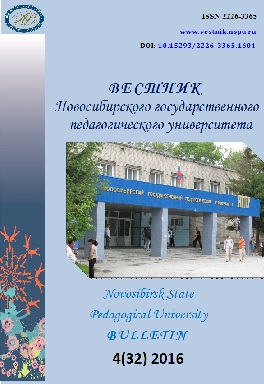Новое положение иностранных языков в системе образования, ориентированного на глобальную гражданственность
The new position of foreign language as education for global citizenship
Author(s): Nadezhda Ivanovna Almazova, Ekaterina Alekseevna Kostina, Liudmila Petrovna KhalyapinaSubject(s): Education, Foreign languages learning, State/Government and Education
Published by: Новосибирский государственный педагогический университет
Keywords: Globalization; multicultural competence; intercultural/multicultural communication; interdisciplinary approach; foreign culture; cultural concepts; global citizen; global citizenship
Summary/Abstract: The article presents the observation of modern directions in research devoted to the problem of changes of the goals in language education, oriented on preparation for effective intercultural and multicultural communication. The purpose of this article is to analyze the influence of the process of globalization on the goals of teaching foreign languages, to describe the ideas of a new approach to the system of foreign language teaching aimed at developing a new type of competence – multicultural and to present its practical results. The authors point out that multicultural competence is characterized here as a new perspective in the theory of linguistic education which is based on cognitive linguistics and focused on the fact that teaching foreign languages is not only a language code acquisition. An important component of teaching is a conceptual world picture of native speakers belonging to different cultures. Two aspects are underlined in the article: 1) the growth of the role of foreign language teaching as education for citizenship [4], 2) confirmation of the new position of foreign language teaching as education for global citizenship. The most important part of the authors’ methodology is an interdisciplinary and integrating approach which includes the theoretical course “Intercultural and multicultural communication” + the theoretical course “Cultural aspects of interpretation” + the practical course “Foreign language (English)”. The results proved the idea that the development of multicultural competence provides the formation of necessary knowledge and skills helping students to become global citizens.
Journal: Вестник Новосибирского государственного педагогического университета
- Issue Year: 6/2016
- Issue No: 4
- Page Range: 7-17
- Page Count: 11
- Language: Russian

